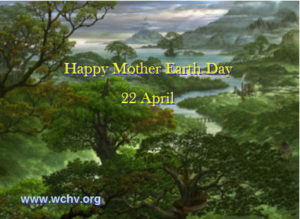 International Earth Day is celebrated on the 22 of April every year. Raising awareness of the challenges to the well-being of our planet and the life it supports.
International Earth Day is celebrated on the 22 of April every year. Raising awareness of the challenges to the well-being of our planet and the life it supports.
International Mother Earth Day (also known simply as Earth Day) recognises that the Earth and its ecosystems provide its inhabitants with life and sustenance. It also aims to raise awareness that humans have a collective responsibility to promote harmony with nature and to balance the economic, social and environmental needs of present and future generations. You can find out more about the Day on the UN’s International Mother Earth Day web pages.
‘Mother Earth’ is an ancient concept common to many languages and cultures, acknowledging our connection to the planet which sustains and nurtures us. Names include Pachamama (Andean culture), Terra (Ancient Rome) and Gaia (Ancient Greece). Gaia has also been used to name a theory (Gaia hypothesis) that life on Earth is organised into a complex a self-regulating system.
You could use International Mother Earth Day as a prompt to explore these concepts or simply to reflect on how our planet nurtures us and how we can care for it in return.















